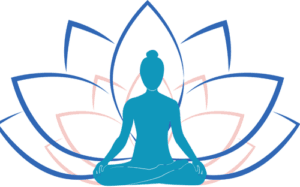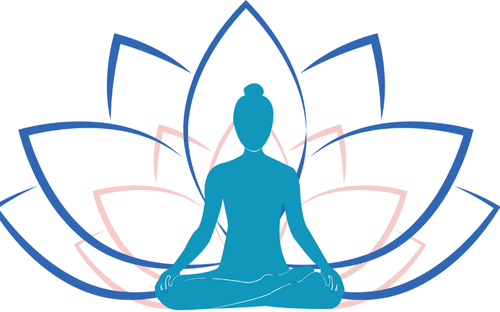How to Be Happy Alone: 5 Keys to Enjoying Your Own Company

The Psychological Benefits of Solitude
Spending time alone can often be misconstrued as a sign of loneliness; however, research and expert opinions highlight a range of psychological benefits associated with solitude. Engaging in solitary activities nurtures creativity, fosters self-awareness, and improves emotional regulation, which ultimately contributes to overall mental well-being. The modern world is characterized by a fast-paced, always-connected lifestyle, making it increasingly vital to carve out time for oneself.
Numerous studies suggest that solitude can significantly enhance creativity. When individuals are alone, they often experience fewer distractions, allowing for deep thinking and reflection. This environment can catalyze the generation of novel ideas and solutions, as the mind is free to wander without external interference. Engaging in solo activities, whether it be writing, painting, or simply contemplating one’s thoughts, can lead to profound creative breakthroughs.
Moreover, solitude encourages increased self-awareness. When individuals spend time alone, they may reflect on their thoughts, emotions, and life experiences, fostering a greater understanding of themselves. This heightened self-awareness can lead to improved decision-making, as individuals become more in tune with their strengths and weaknesses. By recognizing personal values and beliefs in solitude, individuals can align their lives more closely with their true selves.
Improved emotional regulation is another significant benefit of solitude. The ability to reflect on emotions without external pressures allows for better understanding and processing of feelings. This practice aids individuals in managing stress, anxiety, and other emotional challenges, leading to healthier emotional responses. In a society where constant connectivity can lead to overwhelming stimuli, taking time for oneself not only offers respite but also equips individuals with the tools for enhanced emotional resilience.
In essence, solitude is not synonymous with loneliness. Instead, it serves as a valuable opportunity for personal growth, creativity, and emotional well-being. Acknowledging the benefits of spending time alone can empower individuals to embrace moments of solitude, thereby enhancing their overall quality of life.
Tip 1: Practicing Mindfulness
Practicing mindfulness is a powerful approach to enhancing one’s ability to find happiness while alone. It involves cultivating a moment-to-moment awareness of thoughts, feelings, and bodily sensations without judgment. This practice allows individuals to observe their inner landscape and engage fully with the present, fostering a sense of peace and contentment that can enrich solitary experiences. Studies have shown that mindfulness can significantly improve overall mental health, which is essential for enjoying time spent alone.
One effective technique to develop mindfulness is through meditation. Allocating a few minutes each day to sit quietly, focus on the breath, and allow thoughts to pass without attachment encourages a tranquil state of mind. There are various forms of meditation, such as guided sessions, loving-kindness meditation, and body scans, each promoting a deeper understanding of oneself. Beginners might find it helpful to use mindfulness apps or online resources that provide structured meditation practices.
In addition to formal meditation, mindful breathing techniques can be seamlessly integrated into daily life. For example, during moments of stress or anxiety, one can engage in slow, deep breaths. Inhale for a count of four, hold for four, and exhale for four while bringing attention to the sensations of the breath entering and leaving the body. This practice not only reduces immediate stress but also cultivates a habit of grounding oneself in the present moment.
Scientific research supports the benefits of mindfulness; various studies indicate that regular mindfulness practice can lead to reductions in symptoms of anxiety and depression, thereby improving one’s overall outlook. Thus, incorporating mindfulness into daily routines is an effective means of enhancing solitary moments and nurturing self-acceptance, ultimately leading to greater happiness alone.
Tip 2: Finding Joy in Hobbies
Engaging in hobbies is one of the most fulfilling ways to nurture personal interests and find joy while spending time alone. Hobbies provide an opportunity for individuals to explore their creativity, discover new talents, and enhance their overall well-being. Whether it’s painting, pottery, knitting, or engaging in digital art, creative pursuits allow individuals to express themselves artistically, often leading to a significant boost in mood and self-esteem.
Physical activities can also serve as a wonderful outlet for joy. Consider taking up hiking, cycling, or dancing—these activities not only promote physical health but also provide a wonderful opportunity to connect with nature or improve one’s physical fitness. Dancing, whether in the privacy of one’s living room or in a structured online class, offers a cathartic release and a chance to embrace the joy of movement.
The psychological benefits of pursuing personalized hobbies are well-documented. Studies indicate that engaging in activities that one feels passionate about contributes to increased levels of happiness and satisfaction in life. Hobbies can act as a form of mindfulness, allowing individuals to immerse themselves fully in the present while simultaneously cultivating skills that may be further developed over time. This process of skill development fosters a sense of accomplishment, further enhancing self-esteem.
Moreover, solitary hobbies encourage self-reliance and independence, particularly in a society that often emphasizes social interactions. This independent engagement allows individuals to learn more about themselves, what they enjoy, and how to find happiness in solitude. By investing time in personal passions, individuals can cultivate a more profound appreciation for their own company, ultimately leading to a healthier mindset and a more enjoyable life.
Tip 3: Prioritizing Self-Care
Self-care is an essential aspect of enjoying your own company and nurturing a sense of happiness when alone. It encompasses a range of activities and practices that promote physical, mental, and emotional well-being. Engaging in self-care routines fosters a greater connection with oneself, which is vital for enhancing overall life satisfaction. One can start by adopting simple yet impactful activities such as journaling. Writing down thoughts and reflections can serve as an emotional release, offering clarity and perspective.
Another effective self-care practice is taking relaxing baths. Incorporating elements like essential oils or soothing music can transform this routine into a calming ritual, allowing for stress relief and introspection. These moments of tranquility help individuals recharge and focus on personal reflection, making them feel more content during solitary times.
Moreover, immersing oneself in a good book can be a wonderful escape. Reading not only enriches knowledge and provides entertainment but also cultivates imagination and creativity. This engagement allows for a connection with narratives that resonate with personal experiences, further enhancing a sense of fulfillment. Treating oneself kindly, through self-compassion and forgiveness, is vital in this journey. Acknowledging personal achievements, no matter how small, reinforces a positive self-image.
Research supports the idea that self-care practices lead to improved happiness and overall mental health. Studies have shown that individuals who regularly engage in self-care report higher levels of life satisfaction and lower levels of anxiety and depression. By prioritizing self-care, one can not only enjoy their own company but also develop a more profound sense of happiness. Embracing the act of caring for oneself is crucial in cultivating a fulfilling and satisfying relationship with one’s own presence.


